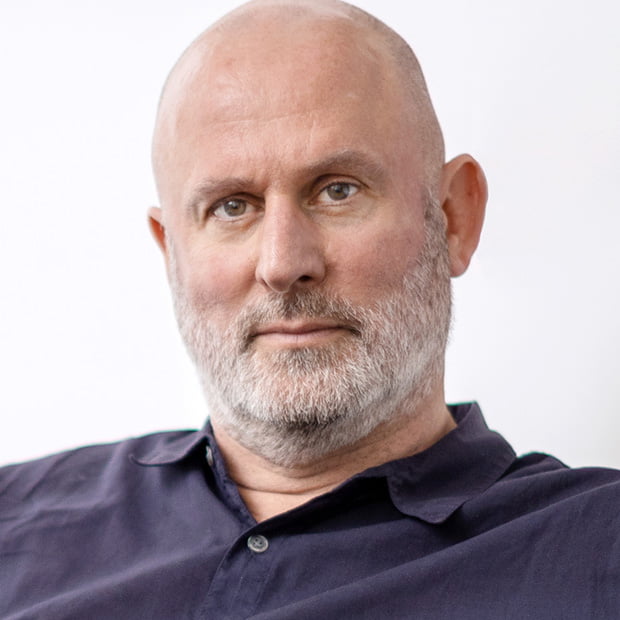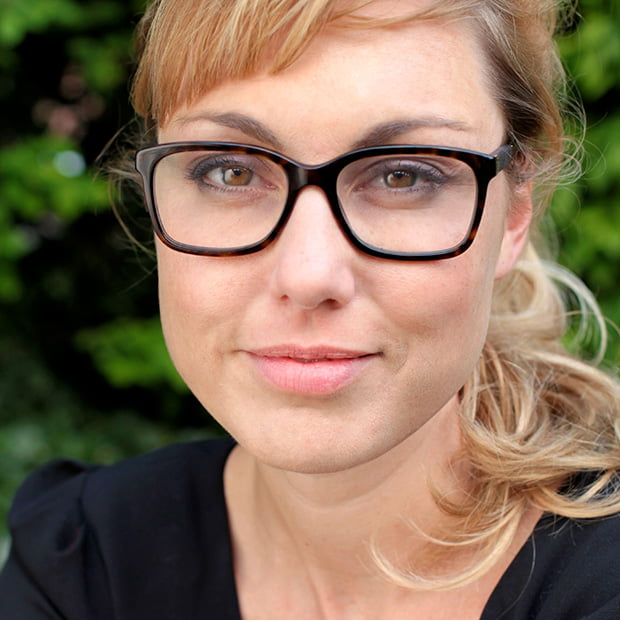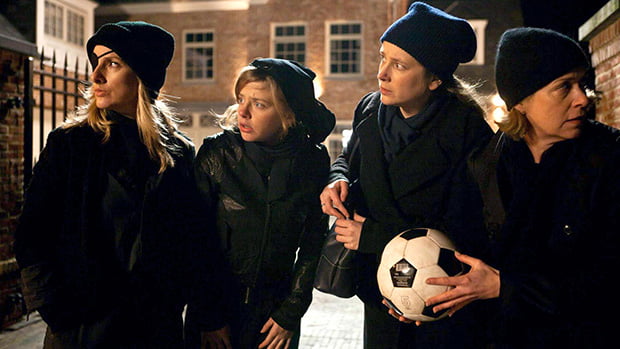Belgian drama boom is no Dead End for Caviar
Bert Hamelinck and Malin-Sarah Gozin of Brussels-based prodco Caviar TV explain their plans for growth, with international coproduction front and centre, and offer a glimpse of their development slate, including new drama Dead End.

Tabula Rasa debuted on Eén in 2017 and is now on Netflix worldwide
Caviar TV is a production company based in LA, London, Brussels, Paris and Amsterdam. With a foot in five markets, the prodco aims to combine the best elements of each in the content it produces, according to CEO Bert Hamelinck.
In the UK, for example, Caviar is currently coproducing Channel 4 drama Before We Die with Eagle Eye Drama, while in the US it is producing an upcoming drama titled Paul T Goldman for NBCUniversal’s streamer Peacock.
In Belgium, Caviar is also active in the high-end drama space, where Hamelinck says coproduction is “crucial.”
“When series are strictly for Belgium, we never look at them as Belgian shows, we look at them as European shows. We always try to find coproducers and try to get a sales party on board so we can reach the budgets that we need,” the chief exec says.

Bert Hamelinck
“If we could use only Belgian financing, I don’t think we could do a lot of shows because there’s a maximum amount you can get out of Belgium, even with the tax incentives. It works for some shows, but for most of the stuff we are trying to do it would not be sufficient. So we need a combination of local and European financing, or worldwide financing.”
One of Caviar’s biggest Belgian successes is drama Clan, which aired on VTM in 2012 and which ZDF Studios sold all over Europe. An Irish adaptation of the dark comedy-thriller, called Bad Sisters, was recently coproduced with Merman in the UK and Disney Television Studios’ ABC Signature in the US, and is streaming now on Apple TV+.
“That’s exactly the core of what we’re trying to do – everything we make, even if we do it first in our local language, we are aiming for the international or global market,” Hamelinck says, highlighting series like psychiatric drama Tabula Rasa, which premiered on VRT-owned channel Eén in 2017 and is now on Netflix globally.
At Connext this week, Caviar is pitching Dead End, created by Malin-Sarah Gozin (Clan, Tabula Rasa) and which Hamelinck says is primarily for the Flemish market but made with European and international appeal.
“It’s beyond doubt that Belgium is producing good shows,” he adds. “Everybody knows it’s good stuff, but it’s still young; it’s still early days. So we have to keep on making good shows and slowly, bit by bit, claim our market share in the European or global buyers’ world. It’s clear everybody is looking at Belgium, that’s for sure.”

Malin-Sarah Gozin
Describing Dead End, Gozin says: “The idea had been playing around in my head even before Tabula Rasa was created. It’s a dark comic mystery-drama about a grief counsellor with a peculiar gift. He has the weird ability to map out the last moments of your loved one’s life.”
After a spate of grisly murders, the police turn to the counsellor for help. Gozin says: “It’s got this unique visual epicurean vibe. I’m really excited because Dead End finally brings together my love for fiction and passion for food.”
Goozin is writing the series with Brett Baer and Dave Finkel, two “insanely talented writers I met while working on Bad Sisters, the remake of my original show Clan, for Apple TV+,” she says.
Dead End will be central to Caviar’s mission at Connext this week. “We’re investigating the financing of the show, so basically we’ll be mostly talking to distributors, sales agents and streamers. We’re aiming to shoot right after summer 2023, so the timing of Connext couldn’t be better,” says Dimitri Verbeeck, producer of Dead End.
While Gozin and the Dead End team pitch OTT services in Antwerp, Hamelinck certainly sees opportunities from the streaming boom but warns that, while Belgian content is garnering more attention, its position in the world of global streamers is still uncertain.
“It’s really good that more buyers are active in the market, but on the other hand sometimes streamers can be limiting. Streamers have a specific way of approaching projects and the money they want to spend on a show depends highly on global talent and genre-driven content. Sometimes our content falls between different genres and then it’s not so easy to convince them,” he says.
“I’m not sure if Belgian content has become a well-known brand, like Scandinavian or Israeli drama has, so for us it’s still hard to negotiate a good price per episode. So while the streaming boom is really positive, I think Belgian shows are still undervalued in the world market. I feel we can push the value of our shows a little bit higher.

Belgian comedy-thriller Clan has been adapted in Ireland as Bad Sisters
“It’s great we have a lot of local streamers in Europe that work for local markets. As long as we have competing buyers, that can only be good for Belgian content. Nobody knows if Disney+ will really invest in Belgium. Hopefully, it will produce local Belgian shows and more players will be active, but we’ll have to see in the future.”
The biggest challenge for Belgian producers, according to Hamelinck, is to avoid “falling between the cracks” and to find the right balance between the local and international players, as the latter put pressure on the market and prices are driven up. There is still strong appetite for local content among Belgian audiences though, the CEO adds.
Looking ahead to the future, Caviar’s aim is to “try to produce bigger shows with bigger budgets and make them as appealing to as wide an audience as possible,” Hamelinck says. Meanwhile, the prodco is “always looking” at expanding into other markets.
“France, especially with the tax regulations and the obligations that the streamers have there, is going to be a very big market. So that’s on our radar. The creativity that comes out of Israel is super important and we need to follow that closely too,” he says.
“But our expansion plans are really based on talent and on people that we click with and want to work with. I know it’s a cliche, but it’s really a people business, so just expanding to grow bigger is not our model or our mandate.”







































